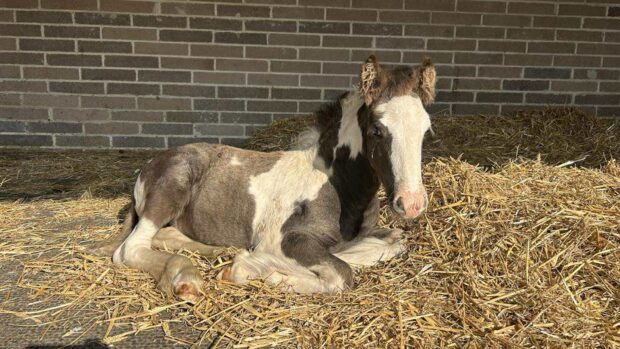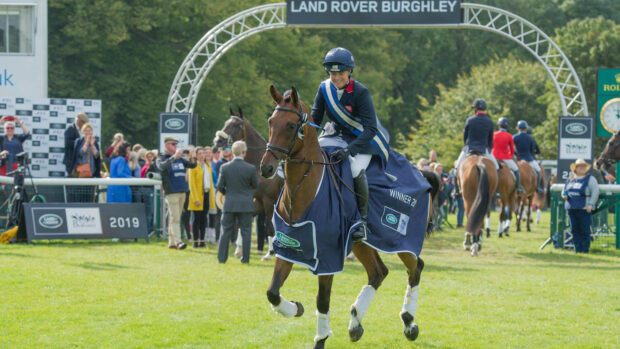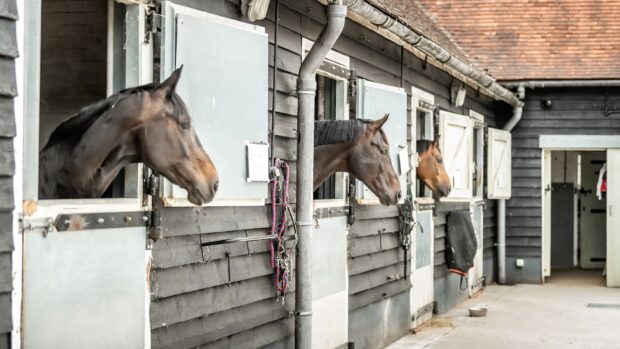Commentators play a key role in how horse sport comes across to the general public – and the language used needs to reflect this, stakeholders agree.
As the horse world continues to look at what can be done to improve public acceptance of equestrian sport, it has been discussed that everyone has a part to play.
Commentator John Kyle, who covered the Rio and Tokyo Games for Olympic Broadcasting Services, told H&H he believes the broadcaster and commentators’ role in social licence has been “somewhat overlooked”.
“In a way, we’re on the front line and we’re part of the sport that is going to be exposed to people who don’t understand it – for example, the people flicking through the television during the Olympics,” he said.
“I’ve worked as a professional commentator for more than 20 years, so this may be one of the reasons, but when I’ve been working at major events, nobody talked to me or my colleagues about ‘these are the current issues around our sport’. But at the Winter Olympics, for example, certain sport federations will give briefings about their sport – not from a social licence view, but because they want to give the broadcasters the best opportunity to understand and explain it to a new audience.”
Mr Kyle added that more consideration needs to be given to the language used in commentary.
“A horse might stop at a wall in a showjumping competition or be a bit overwhelmed and we, without thinking about it, might say the horse just ‘got a bit frightened’. We understand what we mean by that, but if you have never watched horse sport and you’re hearing these horses are being frightened – it doesn’t sound good,” he said.
“Across six hours of competition, it’s of course impossible to never not say something, but it’s just being conscious and maybe trying to tidy it up as soon as possible.”
Mr Kyle said events such as Badminton and Burghley have excellent production teams, but he believes it would be useful for those governing our sports to produce standard guidelines for broadcasters on how the sport is presented and spoken about.
“To an extent, it’s great we’re allowed to be journalists and report on what we see independently, which has been good for the sport, but we have to focus on the realities of where our sport sits to the wider audience, and the concerns they might have,” he said.
“I think this is important particularly for less experienced broadcasters – for example, for riders who might join us in commentary, it would be useful if there was a framework they are briefed on so they understand what they’re trying to do and the language they’re using.”
Olympic dressage rider Laura Tomlinson told H&H she agreed that the use of language at events such as the Olympics is important.
“We usually have a very equestrian person commentating, which makes sense because they have to know and understand the details. However, I think often they don’t really get briefed that well and they sort of talk as if they’re talking to other equestrian enthusiasts. Of course they are partly, but at the same time it’s so important that they get briefed that they’re also talking to the people who don’t normally watch equestrian sport,” she said.
“In dressage, for example, rather than just saying, ‘That was a good half-pass because…’, they should explain a bit more about things that affect social licence. Such as explaining the partnership of the horse and rider, and how long it takes to train a horse, so people don’t think you’re just pulling on a bridle, kicking them with spurs, and that’s what makes the horse ‘dance’.”
World Horse Welfare chief executive Roly Owers told H&H there is a “collective responsibility” when it comes to retaining public acceptance of horse sport.
“This very much includes equestrian commentators, who play a key role in how horse sport and the horse-human partnership is put across to viewers,” he said.
“The language commentators use needs to reflect current understanding of horse welfare and avoid hackneyed statements that are now simply out of date. One example is how riders use the whip; saying a rider ‘hit’ a horse or ‘gave it a whack’ is going to jar with a growing proportion of the public. Knowing what matters to the horse, explaining why a rider is using a particular aid and emphasising the part the horse played in a sporting success will go a long way towards reflecting the realities and true wonder of the relationship between horse and rider.”
An FEI spokesman told H&H no “specific” guidelines for commentators exist in writing, but emphasised that commentators are selected on knowledge and experience, and “not left on the job without guidance and assistance”.
At all FEI events where broadcast is available, broadcast production briefings take place before competition. These cover the TV running order, including “key focus areas and horse welfare elements”, and the FEI broadcast manual, which has “broadcast philosophy guidelines”. These advise on what to do during falls, for example showing the horse walking away after a non-serious fall, and not showing horse or rider down after a bad fall.
You might also be interested in:

Laura Tomlinson: ‘The equestrian community is on trial and we must convince the jury’
Three quarters of riders think horse welfare needs improving

Subscribe to Horse & Hound magazine today – and enjoy unlimited website access all year round
Horse & Hound magazine, out every Thursday, is packed with all the latest news and reports, as well as interviews, specials, nostalgia, vet and training advice. Find how you can enjoy the magazine delivered to your door every week, plus options to upgrade your subscription to access our online service that brings you breaking news and reports as well as other benefits.




